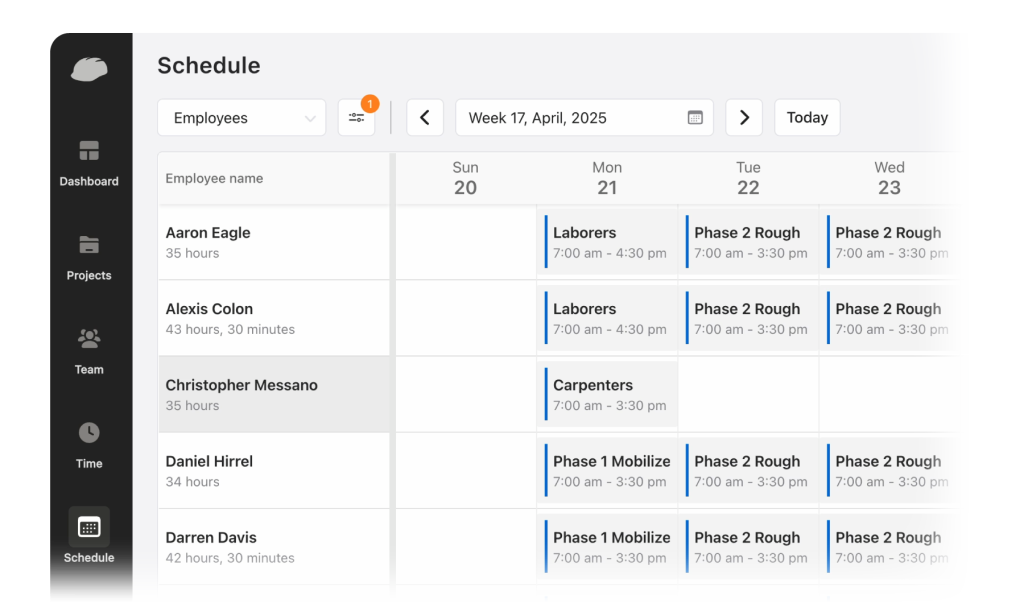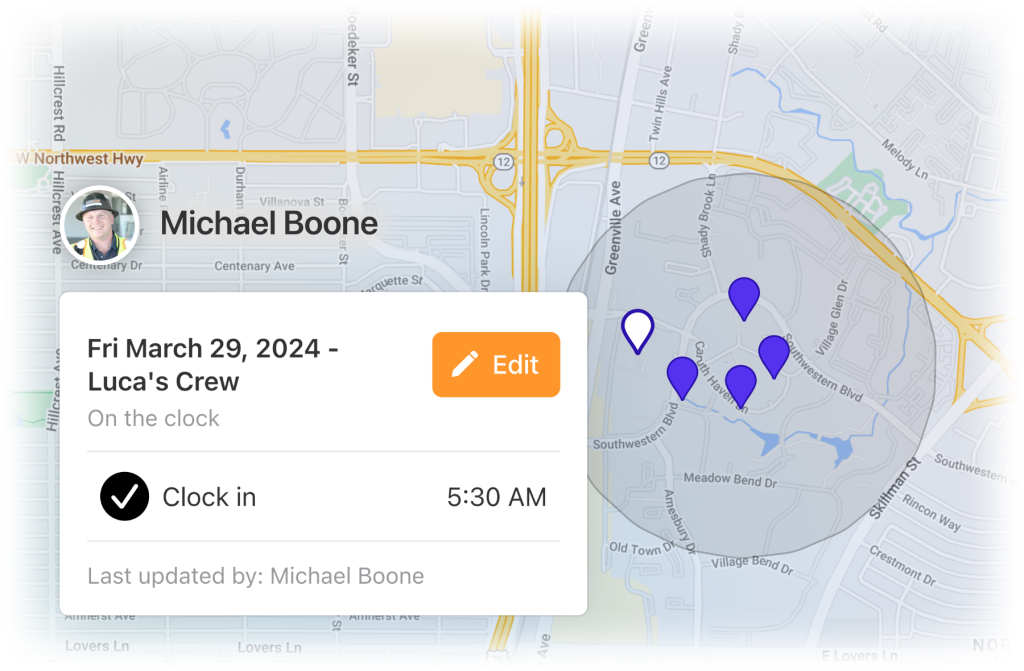Scheduling issues often delay a project’s start and continue to affect productivity as work continues. Learning how to manage crew scheduling effectively helps you keep projects on track and set your field teams up for success on the jobsite.
Common construction crew scheduling obstacles
Labor shortages
At the start of a project, you not only need to find the right number of workers to hire, you also need to make sure they’re all available during the same time frame.
While that’s difficult enough, the construction industry is also currently experiencing a shortage of workers, which makes hiring for long-term jobs even more challenging. Experienced workers are in high demand, and employers may need to reexamine their hiring practices to stay competitive.
Skilled labor availability
Many jobs require team members with specialized skills or qualifications like electricians, plumbers, and heavy machinery operators to complete specific tasks. Instead of hiring these skilled laborers for the entire duration of the project, most businesses will attempt to coordinate their work and hire them only for the period of time when they’ll be needed.
Unfortunately, with all the different task dependencies that may apply, it’s difficult to predict in advance when and for how long to best schedule specialized labor. But, if you wait until most of the dependent tasks are already completed, it will become more difficult to find skilled workers who are available on short notice.
Lack of oversight
If you’re managing the schedule on a particularly large project, managing multiple crews on different jobs, or simply dealing with other equally important demands at the same time, you know it’s easy to miss details or miscommunicate.
Without enough oversight of a project’s schedule, the risk of minor issues leading to significant delays increases significantly. You need to maintain clear visibility to be sure work is proceeding as planned or to make proactive adjustments.
Unexpected absences
Employees may fall ill, get injured, or have personal or family emergencies that require them to take time off from the jobsite. Whether you hire replacements quickly or transfer their tasks to other workers, you may incur greater costs or cause scheduling delays that ultimately affect the project’s profitability.
While it may be tempting to overstaff your crew to avoid this issue, doing so can lead to unnecessary overspending or may result in an overcrowded worksite, which is a serious safety risk.
How can project managers overcome these challenges?
There are several ways to more effectively manage crew scheduling .
Monitor crew activity

More easily identify (and resolve) potential scheduling issues by closely monitoring your crews’ schedules and engaging in active supervision. If you can’t get out to all your worksites daily, though, how do you keep a closer eye on what’s happening?
Raken makes it easy to see what and who is scheduled every day with a clear, real-time calendar view. Filter by employee, group, or cost code to get granular insights, and quickly create and assign new recurring or one-off shifts whenever you need to make adjustments.
Use Raken’s labor scheduling tools on our web app or right from the field on mobile. Whether you're managing a single project onsite or multiple projects from the office, you’ll be able to instantly assess whether or not the right people are on the right jobs at the right times.
Understand your capabilities

Half the battle of scheduling your crews effectively is knowing who is available and what they’re qualified to do.
With Raken’s certification tracking features, you can easily upload and track worker certifications then see where each team member is located on a visual labor map. You’ll gain a better understanding of your team’s capabilities and can pinpoint knowledge gaps to help you make more informed hiring decisions.
If you have a scheduling emergency, check out the map, filter by specific roles or certifications, and see who is available nearby to quickly address it.
Utilize integrated solutions
Integrations save time, improve data accuracy, and make sure that everyone has access to the same, up-to-date information.
Raken integrates seamlessly with industry-leading project management, accounting, cloud storage, and reality capture software. All your important project info can be synced between systems, reducing repetitive workflows so you can be sure you know what’s going on with your projects and focus more time on managing the schedule instead of hunting down data.
Easily manage labor with Raken
Get a clear, real-time view of workers’ qualifications and availability and easily create and assign new shifts.
